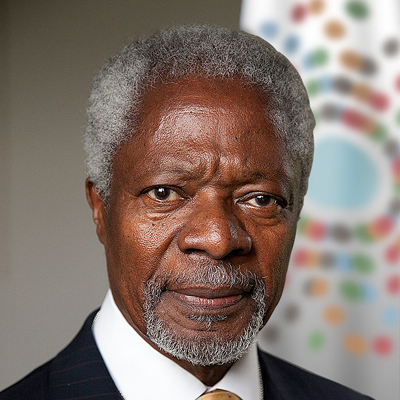Hawzah News Agency-Annan and his team on Friday, December 2, arrived in the volatile northwestern Rakhine State, where an army crackdown has killed at least 86 ethnic Rohingya Muslims, according to government figures. Independent groups say as many as 400 people have been killed.
The team was greeted by a group of protesters, who carried signs that read “Ban the Kofi Annan commission” and chanted, “We don’t want the Kofi Annan commission,” referring to the task force appointed by Myanmar’s de facto leader Aung San Suu Kyi to investigate the violence against the Rohingya.
Suu Kyi in August appointed Annan to lead the nine-member commission, which includes nine independent members, including six national and three international experts.
Maung Khin, a farmer at the Friday protest said “The Rakhine issue is an internal affair. We cannot accept interference from outsiders.”
“We don’t need foreigners for our internal affairs. This shows how the government mishandles the case,” he said.
Suu Kyi, promoted in the West as a “democracy icon,” has been widely blamed for failing to protect Rohingya Muslims from what rights groups say is a systematic campaign of abuse by the army. She has remained silent despite mounting evidence of army abuse in Rakhine, including UN acknowledgement of “ethnic cleansing” of the Muslim minority.
The appointment of the commission came only after massive international criticism.
During his visit to Myanmar, Annan will spend a day in the state capital, Sittwe, before heading to other areas in Rakhine. The state has been under military lockdown since an attack on the country’s border guards left nine police officers dead on October 9. The government blamed the Rohingyas for the assault.
There have been numerous accounts by eyewitnesses of summary executions, rapes and arson attacks against the Rohingya by security forces ever since. The military has also banned journalists and aid workers from entering the zone.
At least 30,000 Rohingya have been internally displaced in Rakhine, while 10,000 others have tried to reach Bangladesh over the last month to seek refuge among the Rohingya refugee population that already lives there.
End.

